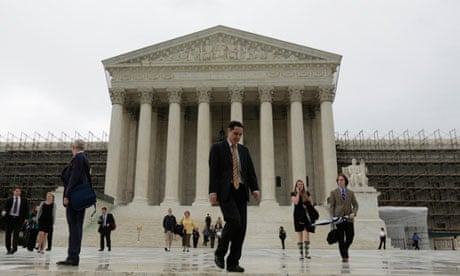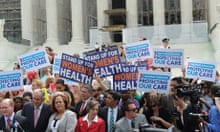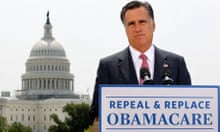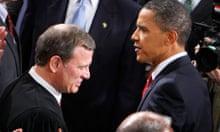The fate of the 2010 Affordable Care Act, the healthcare reform bill passed by Congress and signed by President Obama, will be determined tomorrow by the United States supreme court, which has already been much in the public spotlight of late. While we cannot be sure how Americans will react to the justices' ruling, we do have an idea of what Americans think of the court itself right now.
Americans have confidence in the supreme court
According to Gallup, 63% of Americans express a great or fair amount of trust and confidence in the judicial branch of the federal government headed by the supreme court. That percentage has held relatively constant since Gallup starting asking the question in 1972.
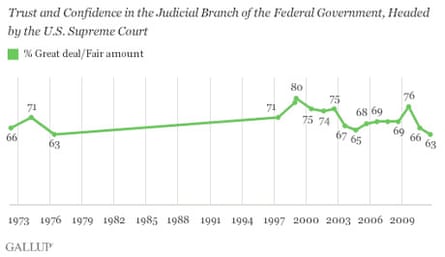
Some years trust is higher than others, but it is always in the 60-80% range. Not surprisingly, confidence is at its highest when faith in government in general is at its highest, such as during the economic boom of the late 1990s, and at its lowest when trust in government in general is at its lowest, such as after the Watergate affair.
Public confidence in the judicial branch of government remains higher than it does in either the executive or legislative branch. Only 47% of Americans had a great or fair amount of trust and confidence in the executive branch headed by the president, as of September 2011, while 52% had not very much or no trust at all in it. Confidence in the executive was in the high 60s, as of the mid 2000s, but trust in the judicial branch is almost always higher. The legislative branch is even less popular, with only 31% of Americans expressing a great or fair amount of trust and confidence in it – while 59% have not much faith to none at all.
Americans approve of the job the supreme court is doing
CBS made headlines in April when it found that only 44% of Americans approved of the job the court was doing, to 38% disapproving. But other polls have found that approval of the court's job is higher than the CBS poll suggests. All polls conducted in the last year have given the supreme court a higher approval than disapproval rating. Quinnipiac had a 52% to 31% approval-to-disapproval split; CNN/ORC had it at 50% to 41%; Fox 48% to 33%; Gallup 46% to 40%; and Time at 47% to 34%. These numbers are far more favorable than for the president, for instance, whose approval is, at best, even with his disapproval, or for Congress whose approval lingers in the low 10s in most polls.
The trend that CBS had seemed to find of declining court approval among the public isn't as clear when you concentrate on other pollster's data. Quinnipiac, for instance, has seen random fluctuations, from 56% approval in 2003, to 44% in 2005, to 58% in 2007, to 39% in 2008, and back up again to 52% in 2012. Gallup, on the other hand, has found approval go from 62% in 2001, to 42% in 2005, to 60% in 2006, to 50% in 2008, up to 61% in 2009, and back down to 46% in 2011. Again, it's mostly random and, if anything, tracks an overall decline in government trust rather than anything specific the court has done.
One important note is that approval of the court is, at this point, even across ideological lines: 44% of independents approve of the job the court is doing; 46% of Democrats do so; and 50% of Republicans approve. But approval of the court by party can often be a reflection simply of who is in the White House.
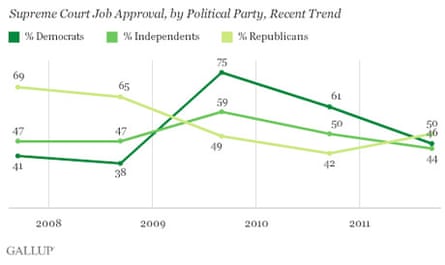
More Republicans approved of the court when George W Bush was president, but that approval fell when Obama took office. Democrats, on the other hand, approved more highly of the court in the early Obama years. Independents' approval of the court has stayed steady for the past five years.
Americans feel the court is ideologically balanced
One of the more interesting questions posed in polls is whether the court is "too liberal, too conservative, or about right". The answer that almost always wins out is "about right".
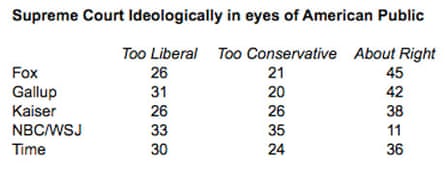
A roughly equal percentage of the population says "too liberal" as says "too conservative", though a few more usually say "too liberal". The lowest percentage of "about right" comes from the NBC/Wall Street Journal poll because, unlike other polls, the "about right" category is not given as a choice and must be volunteered by the respondent. Usually, volunteered categories only register in the low single digits, so the fact that 11% volunteered is telling.
For comparison, the percentage of Americans saying President Obama is "about right" ideologically was 36% in a February Gallup poll. That's roughly in the same ballpark as the Gallup poll of the supreme court, but far more Americans say Obama is "too liberal", at 51%, than "too conservative", at 10%. The court, on the other hand, is pretty evenly disdained by the American public for being "too liberal" or "too conservative".
The court has, if anything, become viewed as more centrist over the past 20 years. In the aftermath of the Clarence Thomas hearings and the midst of Casey v Planned Parenthood in 1992, the court was viewed to be "too conservative" by 54% of Americans. That number dropped quickly in the mid 1990s, and the percentage of Americans seeing the court as "about right" or "balanced" has remained most common answer since.
Final ruling
The supreme court remains the most trusted, approved, and ideologically centrist branch of the federal government in the eyes of the American people. Although some polls may show that the respect and approval it enjoys among Americans is down from earlier years, the court maintains a popularity level that far exceeds the executive or legislative branches. It will be interesting to see whether the Court retains this edge after its decision on Obamacare is announced Thursday.
